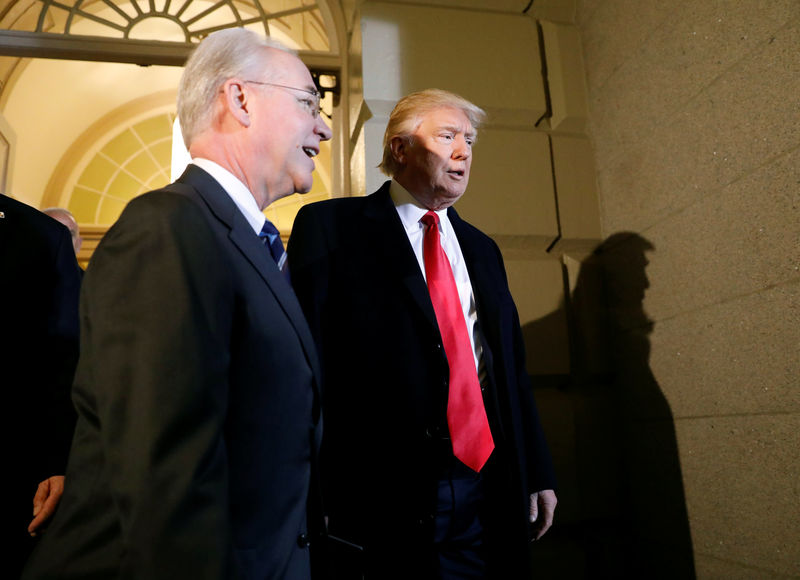WASHINGTON (Reuters) - U.S. President Donald Trump was set to meet with House Republicans on Tuesday to shore up support for the party's healthcare bill to replace Obamacare, increasing pressure to pass his first major legislative initiative despite rifts within their ranks.
Republican leaders recrafted the House bill on Monday in hopes of satisfying critics, proposing major changes to tax credits and provisions to fundamentally alter the joint federal-state government Medicaid insurance program for low-income people.
Republican leaders have said they hope to move the legislation to the House floor for debate as early as Thursday. The administration and House leadership can only afford to lose about 20 votes from Republican ranks.
Despite the changes, the Wall Street Journal reported the House Freedom Caucus, a group of conservative lawmakers, has enough votes to block the bill.
The Senate also will vote on the legislation and more changes could still be made.
Trump was scheduled to speak with Republicans in the House of Representatives Tuesday morning before later meeting on legislative affairs at the White House and then speaking at a Republican congressional dinner, the White House said.
Vice President Mike Pence also will meet with Senate Republicans Tuesday afternoon, the White House said.
At a rally in Kentucky on Monday night, Trump said he wanted to add a provision to the Republicans' bill that aims to lower prescription drug costs through a competitive bidding process. There was no such provision in Monday's changes.
The House leadership needs to win over hard-right conservatives who believe it will not go far enough in repealing the law, as well as moderate Republicans who fear the bill dismantling former Democratic President Barack Obama's Affordable Care Act will hurt millions of Americans.
Republican chairmen for two key committees late Monday said they proposed more funding for tax credits, which conservatives have opposed, that would give the Senate flexibility to help older people afford health insurance. Additionally, Obamacare's taxes would be eliminated in 2017 instead of 2018.
Monday's amendments also addressed Medicaid, the nation's largest health insurance program that covers about 70 million people, mostly the poor. The changes would allow states to implement work requirements for certain adults and to decide how they receive federal funds.
The Congressional Budget Office is expected to update its analysis of the legislation with the proposed changes after it said last week the original bill would cause 24 million to lose coverage over the next decade.

Democrats oppose Republicans' plan, which they say would throw millions off health insurance and hurt the elderly, poor, and working families while giving tax cuts to the wealthy.